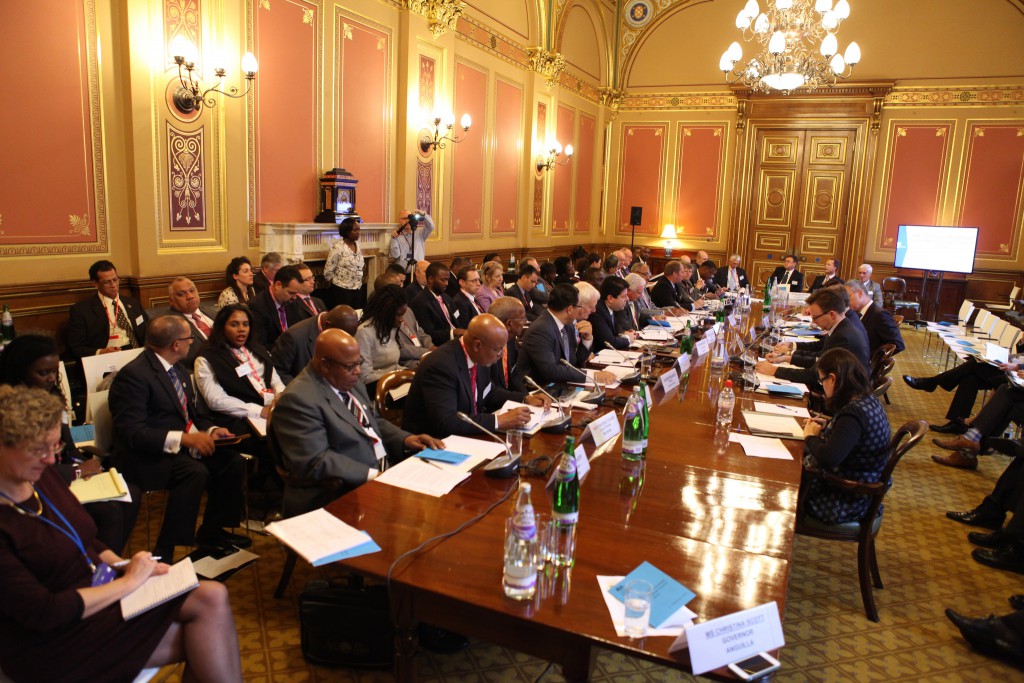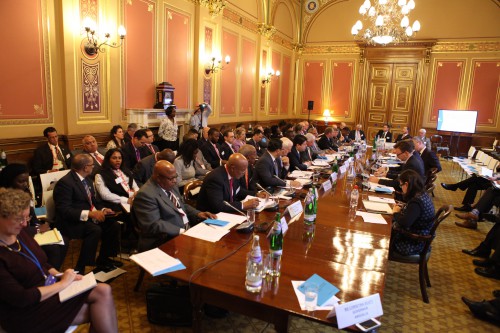15th December 2014
Britain’s global horizons: international partners and penguins


The UK’s fourteen Overseas Territories add a particular dimension to British foreign policy and our world view. I often write in these pages about the global Holy See network. The United Kingdom has long had, and still retains, a global role, of which our fourteen Overseas Territories are both one result and an ongoing manifestation. They are exceptionally diverse, making Britain the world’s leading penguin nation as well as one of its top coral reef states. They include the world’s richest and its most remote community. They enhance Britain’s global footprint and worldwide links, coming with significant responsibility.
This month saw the regular meeting in London of elected leaders and representatives from all the inhabited territories (Anguilla, Ascension Island, Bermuda, British Virgin Islands, Cayman Islands, Falkland Islands, Gibraltar, Montserrat, Pitcairn, St Helena, Tristan de Cunha and the Turks and Caicos Islands). The subsequent Joint Ministerial Council Communique set out the wide range of issues affecting the Overseas Territories and fifteen specific commitments for Territories and UK government to take forward over the coming year, ranging from environmental stewardship to good governance, human rights to child safeguarding.
The Overseas Territories, alongside the UK’s leading role as a member of the European Union, the Commonwealth of Nations, NATO, the UN Security Council and other international bodies, ensures that we lift our horizons from purely domestic to our international responsibilities. From the perspective of this embassy, it means that there is significant overlap between the UK’s worldwide role and the global demands faced and concerns expressed by the Holy See. The Overseas Territories, and the people who live there, are an important part of that.